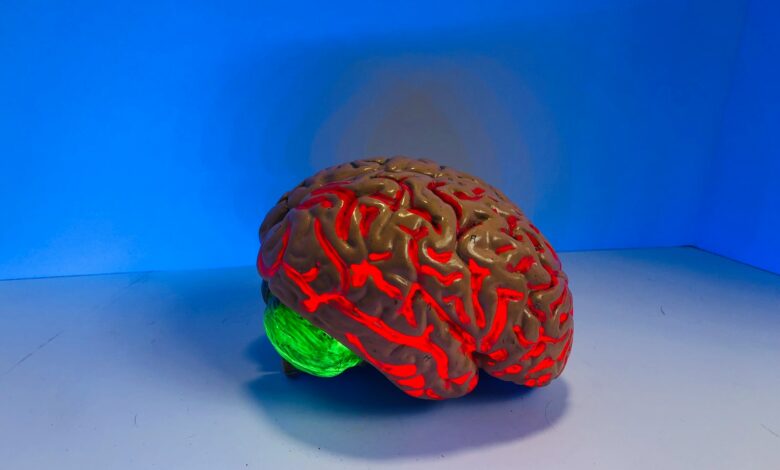Unlocking Hidden Depths: How Altered States of Mind Can Transform Your Self-Awareness
What Are Altered States of Mind? A Scientific Overview

Introduction
In the pursuit of personal growth and self-awareness, many people explore the concept of altered states of mind. These states—whether achieved through meditation, deep breathing exercises, or even certain therapeutic substances—can help us break free from the limitations of ordinary consciousness. Altered states of mind have long been associated with spiritual enlightenment, heightened creativity, and profound insights into one’s inner world. This article delves into the science and experiences behind altered states of mind, how they can foster better self-awareness, and practical methods for safely exploring them.
Current Trends, Challenges, and Opportunities
In recent years, there has been a resurgence of interest in exploring altered states of consciousness, particularly in the context of mental health and well-being. Techniques like mindfulness meditation and breathwork have gained popularity, alongside the careful and supervised use of psychedelic substances in therapeutic settings. However, challenges remain, particularly around societal stigma and the legal status of some methods. Yet, the opportunities for personal transformation and deeper self-understanding through these practices are significant. This section explores the evolving landscape of altered states and their potential impact on personal development.
The Power of Altered States in Expanding Awareness
- What Are Altered States of Mind? A Scientific Overview
- Description: Altered states of mind refer to any condition of consciousness that is significantly different from the normal waking state. These states can be induced intentionally or occur spontaneously, such as during deep meditation, trance, or even through sleep.
- Example: Practices like Transcendental Meditation or guided imagery are known to induce altered states that can help individuals access parts of their subconscious that are otherwise unreachable in everyday life.
- Key Insight: By shifting our state of consciousness, we can tap into new ways of thinking, perceiving, and understanding the world around us, leading to enhanced self-awareness and insight.
- How Altered States Can Improve Self-Awareness
- Description: Altered states allow individuals to step outside their habitual thought patterns and gain new perspectives. This can be especially useful for understanding deep-seated emotions or overcoming negative self-talk.
- Example: Techniques like breathwork or using a flotation tank can induce a state of relaxation and sensory deprivation, allowing the mind to focus inward and process emotions in a deeper way.
- Key Insight: When we experience altered states, we often find ourselves more attuned to our thoughts and feelings, enabling a more objective view of our inner life.
- Practical Techniques for Achieving Altered States of Mind
- Description: There are many ways to access altered states of consciousness, ranging from ancient spiritual practices to modern therapeutic methods. It’s important to find a method that aligns with personal comfort and safety.
- Example:
- Meditation: Practices like Zen meditation or guided visualization can bring about a calm yet heightened state of awareness.
- Breathwork: Techniques like Holotropic Breathwork can stimulate a shift in consciousness, leading to profound personal insights.
- Sound Therapy: Using binaural beats or sound bowls can help in guiding the brain into a meditative state.
- Key Insight: Exploring these methods can be a safe and accessible way to experience altered states, offering a gateway to deeper levels of self-awareness without relying on substances.
Challenges in Exploring Altered States
While altered states can offer profound benefits, it’s important to approach them with care and respect. For instance, practices involving psychedelic substances may have legal restrictions and require a controlled environment to ensure safety. Misguided or unsupervised attempts to reach altered states can sometimes lead to anxiety or confusion, especially for those unfamiliar with the process. It’s crucial to seek guidance from experienced practitioners or licensed professionals when exploring more intense forms of altered states.
However, the potential rewards—such as enhanced creativity, reduced stress, and greater emotional clarity—make the exploration worthwhile for many. With proper preparation and the right mindset, altered states can be a powerful tool for personal growth.
The Role of Altered States in Modern Therapy and Healing
Altered states have found a place in therapeutic settings, where they are used to address conditions like PTSD, anxiety, and depression. Psychedelic-assisted therapy, for instance, is being studied for its potential to facilitate emotional breakthroughs and deep healing when combined with traditional psychotherapy. Similarly, mindfulness practices that induce altered states can help individuals manage stress, improve focus, and foster a sense of inner peace.
Conclusion
Altered states of mind offer a doorway to self-exploration and deeper awareness. By consciously shifting our state of consciousness, we can break through mental barriers and access new ways of seeing ourselves and the world around us. While it’s essential to approach these states with caution and mindfulness, the potential for personal transformation is vast. Embracing these experiences with an open heart can lead to a richer, more fulfilling journey toward self-awareness.
Call to Action: Have you ever experienced an altered state of mind? What techniques have worked for you in enhancing your awareness? Share your thoughts and join the conversation about exploring new dimensions of consciousness.




